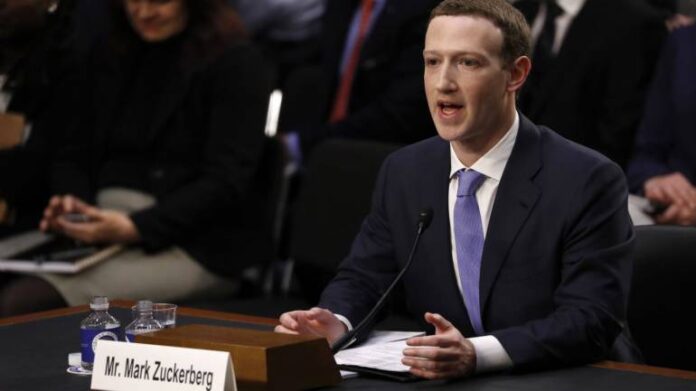WASHINGTON: Facebook Inc will pay a record-breaking $5 billion fine to resolve a government probe into its privacy practices and the social media giant will restructure its approach to privacy, the US Federal Trade Commission said on Wednesday.
The FTC voted 3-2 along party lines to adopt the settlement, which requires court approval. Democrats opposed it, saying it did not go far enough or require a large enough fine.
“Despite repeated promises to its billions of users worldwide that they could control how personal information is shared Facebook undermined consumers’ choices,” FTC Chairman Joe Simons, a Republican, said in a statement.
Democratic FTC Commissioner Rohit Chopra said the penalty provided “blanket immunity” for Facebook executives “and no real restraints on Facebook’s business model” and does “not fix the core problems that led to these violations.”
Facebook agreed to pay an additional $100 million to settle allegations that it misled investors about the seriousness of the misuse of users’ data, the Securities and Exchange Commission said on Wednesday.
The FTC said that Facebook’s data policy was deceptive to “tens of millions” of people who used its facial recognition tool and also violated its rules against deceptive practices when it did not disclose phone numbers collected for a security feature would also be used for advertising.
Under the settlement, Facebook’s board will create an independent privacy committee that removes “unfettered control by Facebook CEO Mark Zuckerberg over decisions affecting user privacy.”
Facebook also agreed to exercise greater oversight over third-party apps.
Chopra and Democratic FTC Commissioner Rebecca Slaughter said the $5 billion penalty may be less than Facebook’s gains from violating users’ privacy.
“Until we address Facebook’s core financial incentives for risking our personal privacy and national security, we will not be able to prevent these problems from happening again,” Chopra said.
The FTC Republican majority argued the settlement “significantly diminishes Mr. Zuckerberg’s power — something no government agency, anywhere in the world, has thus far accomplished.”
The Republican commissioners led by Simons said if the FTC had gone to court “it is highly unlikely that any judge would have imposed a civil penalty even remotely close to this one.”
They called the settlement — in light of what the FTC might have been able to win in a court fight — “a complete home run.”
The Republicans noted that Zuckerberg and other Facebook executives must sign quarterly certifications attesting to the company’s privacy practices.
The FTC said Zuckerberg or others filing a false certification could face civil and criminal penalties.
Facebook also is barred from asking for email passwords to other services when consumers sign up. It is barred from using telephone numbers obtained in a security feature, like two-factor authentication, for advertising and must get user consent to use data from facial recognition technology.
Facebook said the deal worked out with the FTC would give the company “a comprehensive new framework for protecting people’s privacy,” and that it expected to find additional problems as it initiates a review of its systems.
“Going forward, our approach to privacy controls will parallel our approach to financial controls, with a rigorous design process and individual certifications intended to ensure that our controls are working – and that we find and fix them when they are not,” Facebook General Counsel Colin Stretch said in a statement.
Senator Richard Blumenthal, a Democrat from Connecticut, called the settlement “a fig leaf” that offers “no accountability for top executives.”
“By relying on a monetary fine to deter Facebook, the FTC has failed to heed history’s lessons. Facebook has already written this penalty down as a one-time-cost in return for the extraordinary profits reaped from a decade of data misuse,” said Blumenthal.




